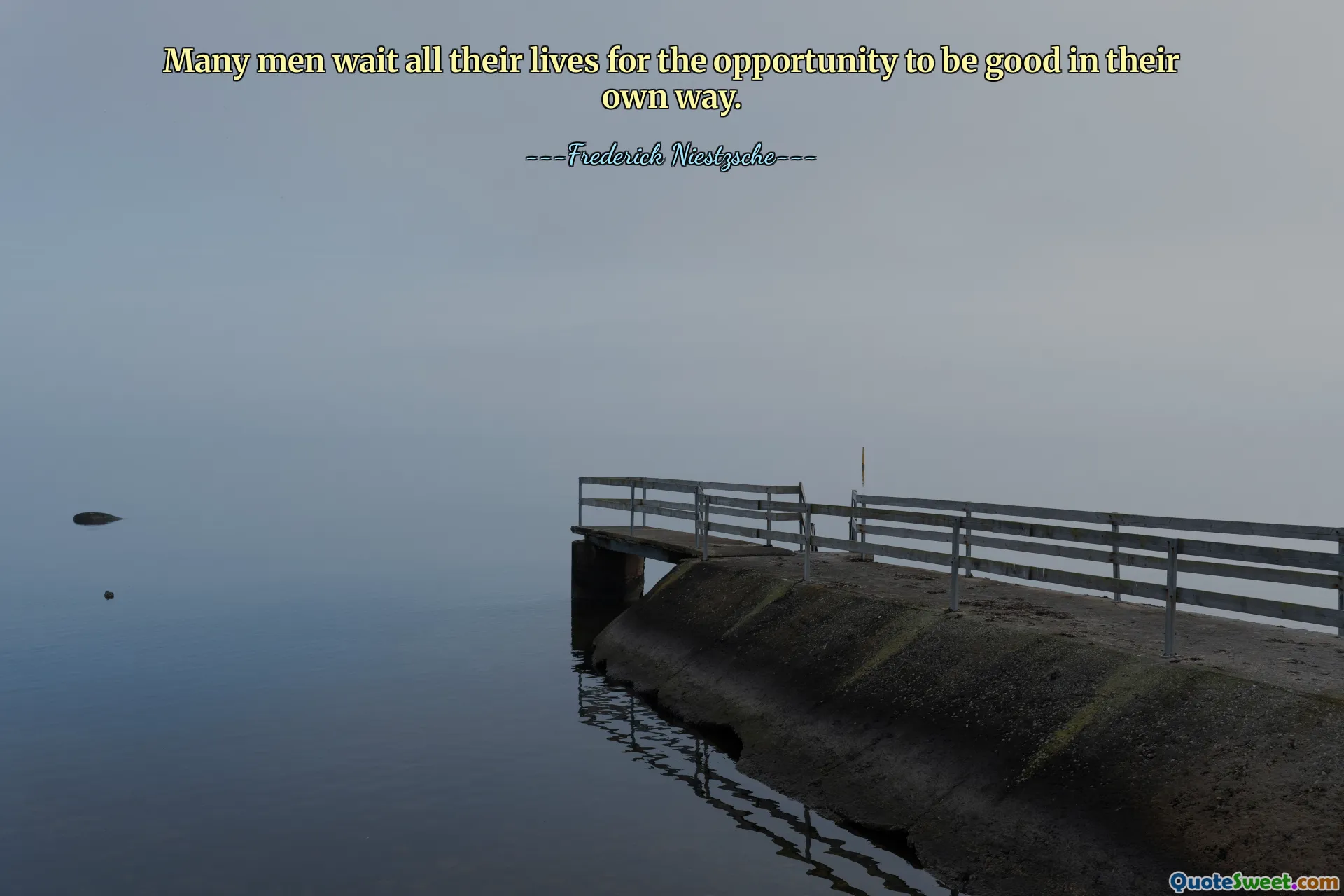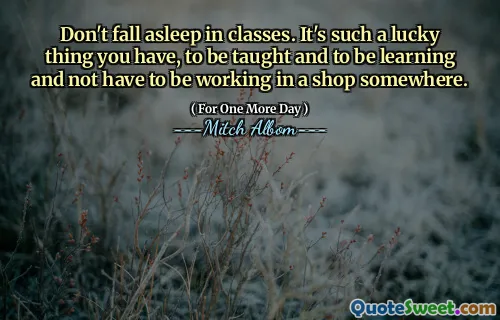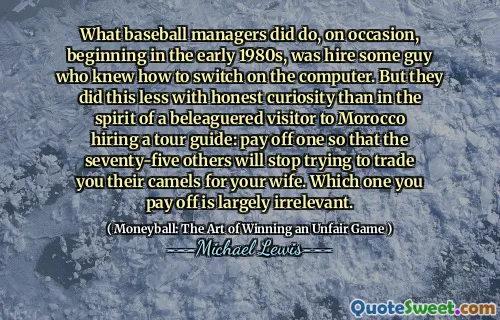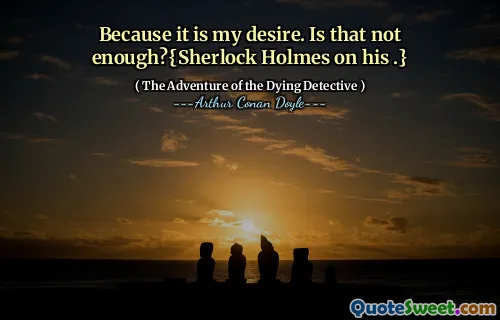
Many men wait all their lives for the opportunity to be good in their own way.
This quote highlights a deeply human aspiration: the longing to express one's goodness or virtue through unique individual talents or qualities. It touches on the patient, and sometimes lifelong, wait many people endure before finding the chance to demonstrate their true worth or goodness in a manner authentic to themselves. The phrase "in their own way" is particularly compelling because it acknowledges the diverse modes of goodness that exist—there is no singular blueprint for being "good." This evokes a powerful message about individuality and self-expression, suggesting that every person harbors potential and merits pain-staking recognition not through generic standards of virtue, but through their unique contributions and capacities.
From a broader perspective, the quote can be viewed as both disheartening and hopeful. Disheartening because it reveals how society or circumstances can often delay the opportunity to manifest one’s goodness, sometimes for a lifetime. Many people might find themselves trapped in routines or marginalized conditions that suppress this emergence. Hopeful because it carries the profound promise that such goodness, when it finally finds expression, has intrinsic value and dignity. It also gently urges us to be patient and attentive to the opportunities and moments that allow us to shine authentically.
This quote invites reflection on how society values different expressions of goodness and benevolence. Are we open to recognizing diverse forms of moral and personal worth? How can we create environments and opportunities where everyone's unique good can flourish? The thought encourages us to support others patiently in waiting and questing for their moment to be "good" in their own distinctive way.











